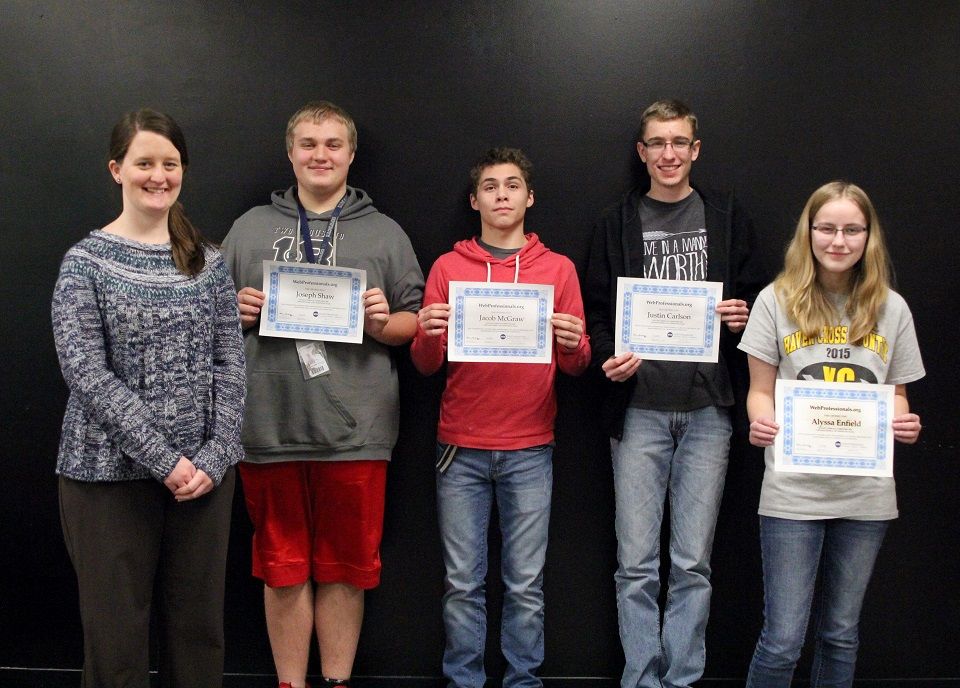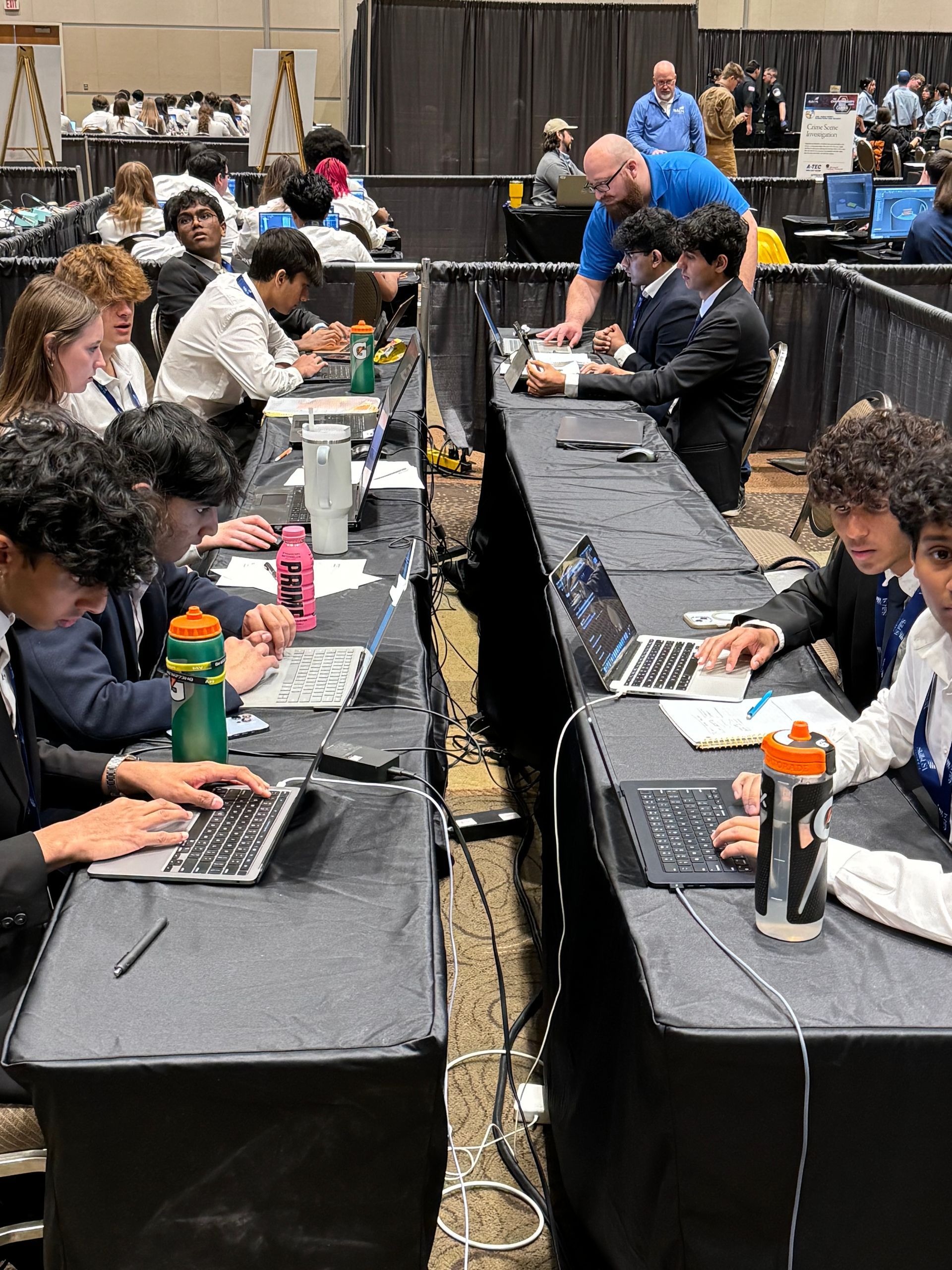Blog
Computer Science is Hard. Fact or Myth?
If there is something the world needs more of, it’s computer scientists. It’s a broad term, as this could mean anyone from PHP programmers to computer technicians. In order to excel in the world of computers, people need to study computer science in general.
Students who study computer science learn to design, analyze and develop computer hardware and software. This leads to many breakthroughs that will be used to solve problems in a number of social, business, educational and scientific applications. However, many people think computer science and it’s related fields are complicated.
Teachers and students alike may view the subjects as hard to learn and teach, and that only the brave should attempt it. But is computer science really that hard? Let’s see if this is a fact or a myth worth dispelling.

Is Learning Computer Science Hard?
So is learning computer science hard ? Well the picture above is certainly what is seems like on the outside! Learning computer science is no harder than learning business or management. In fact, many undergraduate programs design their syllabus to accommodate students with no knowledge of computer science at all.
Although this does not make learning computer science a cakewalk, students should be able to excel at it as long as they are willing to put in the time and work.
One inescapable aspect of computer science that really gets people down is computer programming. A lot of people think it is hard and should best be left to people who are passionate about computers (nerds). But is programming hard to learn? Not if the basics of writing code are clearly understood.
Skills Needed For Programming & Beyond
Basically, writing code is like writing down steps that tell a computer how to perform a particular task. Like with anything worth doing, it requires reading and practice to get the basics right – not to mention some problem-solving skills as well.
On the plus side, programming is just one of the skills a computer scientists needs in their arsenal. It is perfectly okay to be a computer scientist without being a good programmer as there are many non-programming jobs in the IT industry.
 These jobs include the following:
These jobs include the following:
- Business Analyst
- Database Administrator
- Solution Developers
- IT Auditor
- System Support
- Project Manager
- Data Analyst
- Software Testing
- User Interface Designer
- Online Marketing Writer
- Teacher
Another part of learning computer science that needs to be addressed is that it involves math. However, the math taught is computer science-specific and serves a purpose.
For example, programmers need knowledge of standard arithmetic (addition, subtraction, division and multiplication) and algebra to write certain applications or solve a particular problem. Luckily, the math is taught from point zero and can be kind of fun seeing how it meshes well with computer science concepts.
Watching the calculations you write bring your idea to life is an experience that most computer science majors will say they enjoy.

Is Teaching Computer Science Hard?
So do you need to be an expert at computer science in order to teach it? Do you even have to have a STEM major ? Not at all!
It could feel like a maze looking at methods for learning and teaching computer science. Although it is true that an individual cannot teach a subject they are not fully comfortable with, it would be impractical to think they need to know everything about it in order to teach it effectively .
If this philosophy works well with other subjects, such as biology or business, there is no reason why it should not work with computer science as well. Here is a story we like sharing about how a teacher in Haven, KS found success with our online STEM courseware with no prior experience.
Learning With Your Students Is A No Brainer
Did you know that you can learn computer science as you teach it? It’s a well kept secret that is very important for providing students with the best computer science education possible. This applies to students of college, high school or middle school level.
So what is the secret to…well…the secret?
In our experience, teachers who were previously not comfortably teaching computer science and web technologies are find success with CTeLearning ‘s online courseware and curriculum .
Teachers have found that not only are their students learning skills in Web Design , Mobile App Design and Computer Animation , but with each passing year, the teachers themselves are learning the skills as well!

Computer Science is For Everyone
One stumbling block to the effective teaching of computer science that is worth mentioning is thinking that some students where born to be computer scientists while others were not . Be careful of going down this slippery slope.
This idea is usually an issue when teaching computer coding and programming, as teachers will notice that some students cannot seem to grasp concepts just as easily as their peers.
Rather than give into this notion, a notion with zero evidence, teachers can double down on their teaching strategies to overcome the learning difficulties that some of their students are facing. Not everyone learns the same way, some need hands-on while others can succeed with clearly articulated concepts.
Learning to teach in a way that inspires creativity is the key to unlimited knowledge.
 So is it Myth or Fact?
So is it Myth or Fact?
So is computer science hard ? The short answer is: it can be. However, it is not as hard as people make it out to be. The fact that people make computer science seem so difficult is probably why many people shy away from learning and teaching it.
As mentioned earlier, the world needs computer scientists, programmers, IT specialists, and more. We would want nothing more than to empower you to give your students a head start with a great learning platform that’s as easy to learn as it is to teach .
We might be a bit biased, but the real myth worth dispelling here is that the answer to the question “Is computer science difficult?” is a resounding no.
What do you think? Contact us to share your opinion or learn more.
Get in touch with us today!
You can book a demo directly using Calendly, call us directly at 913-764-4272 or 877-828-1216, or submit the form below and we will reach out to you.
We look forward to helping you and your students.

Most Recent Posts



About Us
Whether you are a big institution, small school or an individual seeking a new career path, our curriculum is for you.
Request a free demo of our curriculum today to see how you can help fuel our future world.
Get In Touch
PO Box 398 Olathe, KS 66051
hello@CTeLearning.com
Phone: 913-764-4272
Toll Free: 877-828-1216
Fax: 866-307-8112
Email: info@ctelearning.com
Quick Links
All Rights Reserved | Support Learning, Inc.
Web Design by Tekkii

